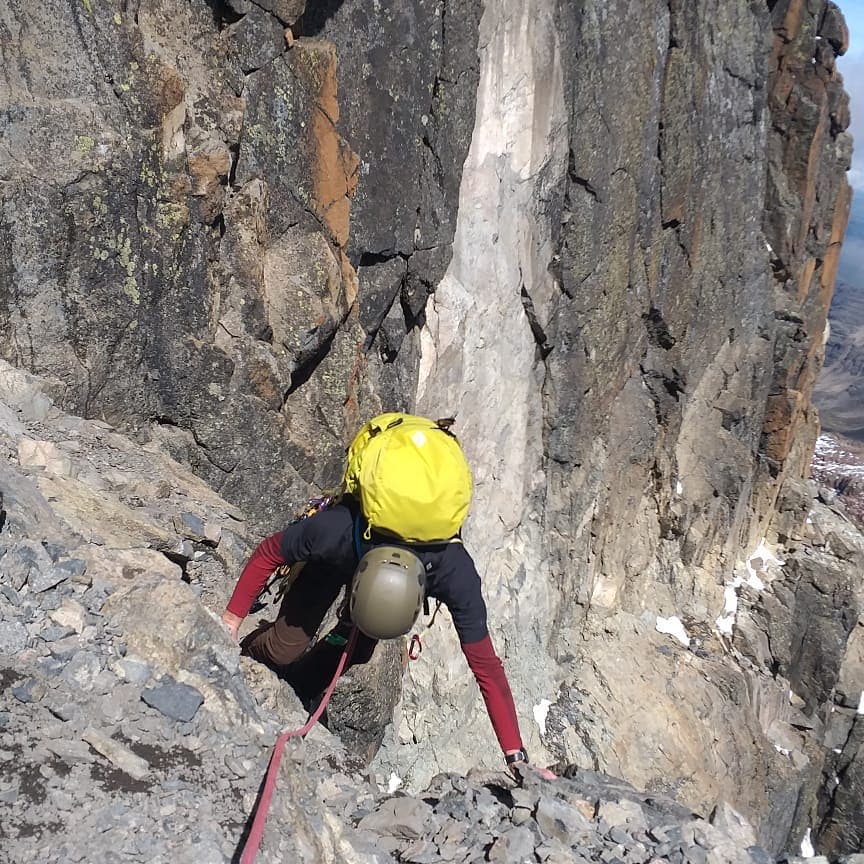
Mount Kenya Technical Climbs to Batian and Nelion Peaks
Mount Kenya Technical Climbs to Batian and Nelion Peaks
Mount Kenya, the second-highest mountain in Africa, offers a mix of adventure and technical prowess for climbers. While the popular trekking route to Point Lenana is accessible to most hikers, the true summits—Batian (5,199 meters) and Nelion (5,188 meters)—require advanced technical climbing skills, courage, and commitment.
The Technical Climb of Batian Peak
Batian Peak is the highest point of Mount Kenya and is the ultimate technical climb in Kenya. This challenging ascent, completed in a single, long day, involves up to 21 pitches along the North Face.
Fitness and Skill Requirements to climb Mount Kenya Batian Peak
Climbing Batian Peak is physically and mentally demanding. Climbers must have excellent physical conditioning, with stamina for a climb that can take up to 12 hours. Essential skills include familiarity with leading long runouts, completing multi-pitch climbs, and safely managing long rappels. Technical climbing knowledge is critical, as the pitches range from grade UIAA II to IV+, meaning you’ll encounter varying levels of difficulty, from simple scrambles to more complex climbs with occasional exposure to wind, mist, and cold.
Best Time to Climb Batian Peak
The ideal season for ascending Batian Peak is during the northern hemisphere summer, from June to early October. During these months, the North Face routes are clear of most snow and ice, providing climbers with warmer rock and more favorable climbing conditions. Being just south of the equator, the sun is slightly northward, allowing for a sunnier ascent with better grip and visibility. However, always prepare for unpredictable weather shifts, as rain and snow can make an appearance even during the dry season.
Mount Kenya Technical climb to Nelion Peak: The South Face Climb
Nelion Peak, the second-highest peak on Mount Kenya, is only slightly shorter than Batian but presents its own set of unique challenges. The ascent to Nelion typically involves up to 18 pitches along a non-linear route covering approximately 400 meters. Like Batian, Nelion requires advanced skills, previous climbing experience, and the ability to handle a variety of climbing conditions.
Best Season for Nelion Climb
The best months to climb Nelion Peak are December to March. During this period, the South Face receives ample sunlight, reducing ice accumulation and making the climb warmer and more manageable.
Understanding the Climbing Terrain on Mount Kenya
Mount Kenya’s rock, Nepheline Syenite, is similar to granite and offers strong friction and reliable holds. The volcanic rock is rugged, with naturally weathered fissures running vertically and horizontally. Climbers should be aware of loose rocks and sandy scree, particularly in couloirs, which can create challenges and require careful footing. Wearing a helmet is essential to protect against any loose debris.
Key Equipment for Mount Kenya’s Technical Climbs to Batian and Nelion Peaks
For both Batian and Nelion ascents, be equipped with helmets, harnesses, ropes, and reliable climbing shoes designed for abrasive surfaces. Get a comprehensive Mount Kenya gear list.
Preparing for Success: Fitness, Acclimatization, and Mental Toughness
Climbing Mount Kenya’s technical peaks isn’t just about physical strength; it also requires mental resilience. With routes that can take up to 12 hours, climbers must be prepared for a long, strenuous day. Acclimatization to altitude is key, as both Batian and Nelion demand time at high elevations. Spending a few days at moderate altitudes before your climb will improve your body’s ability to handle the thinner air and reduce the risk of altitude sickness.
How Many Days Are Needed for Technical Climbs to Batian and Nelion Peaks on Mount Kenya?
For climbers aiming to conquer Mount Kenya’s highest peaks, Batian and Nelion, a well-planned itinerary is essential. Ahambi Tours recommends 7 to 9 days to complete this adventure, which includes both trekking and a technical climb that requires a full day to summit.
This duration allows for proper acclimatization, ensuring climbers adjust to the high altitude before attempting the technical ascent. Additionally, having an extra day is crucial for flexibility in case of bad weather, which can affect summit success.
Ready for the Challenge? Book Your Mount Kenya Technical Climb with Ahambi Tours
Our guides are certified professionals with extensive experience navigating Mount Kenya’s technical routes, and we provide all necessary support for a safe and successful climb. To book your Mount Kenya Technical Climb visit ahambitours.co.ke.
